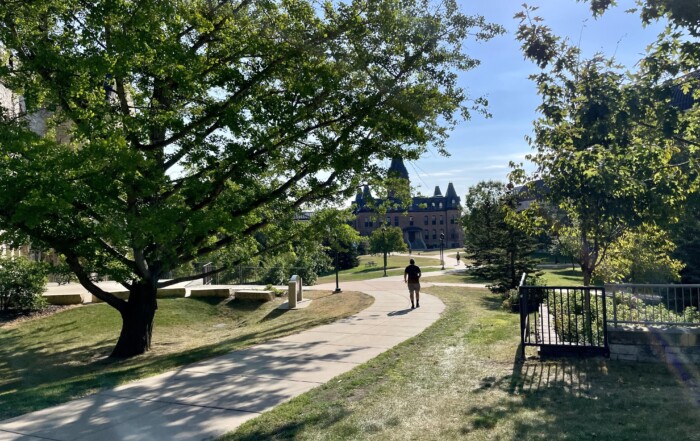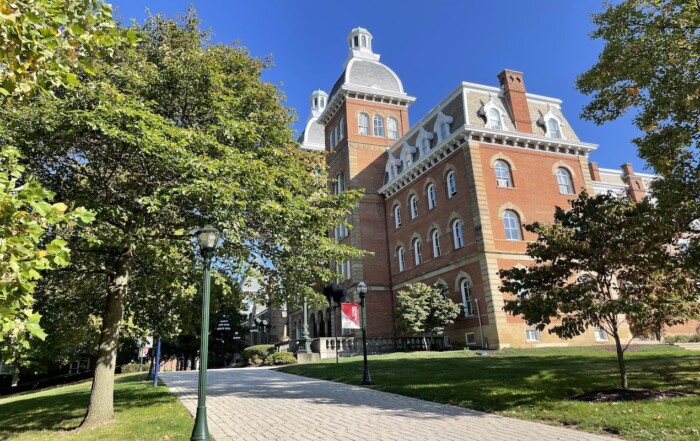College Admissions Tips and Guidance
Course Selection Time: Choose Wisely

Explore Our Articles
Recent Posts
Popular Categories
Get In Touch
On Social
By Phone or Text
(617) 734-3700
By Mail or Email
1678 Beacon Street
Brookline, MA 02445
By Form
Educational Advocates
Our objective is to guide the family in finding options where the student will not only get admitted, but thrive and find success once on campus.
Course Selection Time: Choose Wisely
It is the time of year for high school students to make course selections for next academic year. While you may not have many options until senior year, you still must decide on electives and the appropriate level of rigor for your academic classes. Here are some factors to consider when making your selection:
Sketch Out A Plan for Your Remaining High School Years
Students typically consider their courses for the following year without much thought about where those selections will take them by the time they graduate from high school. Do some long-term thinking and ask yourself, “What do I want to accomplish by the time I am a senior?” For instance, if you think you want to take calculus by senior year, then be sure you are choosing math courses early in high school to put you on the proper path. You can always make modifications later, but sketching out your plan for all four years will help you be focused and directed about your goals.
Challenge Yourself Appropriately
If you take too many challenging courses, your GPA may take a hit or you might be stressed and overwhelmed to an unhealthy degree. That is what happened to Michelle, who opted for AP European History, AP Spanish and AP Statistics during senior year. The problem was that math is not her strength, so she earned a C in that course during her first term. Since colleges see the first-term grades for seniors (for earlier high school years they only see the final grade), this most likely hurt her chances at some of the colleges to which she applied. While she still ended up at a great university, at the time this was a stressful experience.
Conversely, if you choose a course where you expect to get an easy A, you may not be challenging yourself appropriately—and you might be limiting your college options by not taking the higher-level course. One student, Eliza, decided to play it safe and take honors US History during junior year even though she had always earned A’s in history courses during high school. She was afraid that if she earned a B in AP US History it would lower her GPA. What Eliza didn’t consider, however, is that she was interested in very selective colleges—colleges that expect successful applicants to have at least one AP course on their transcript during junior year. She would have positioned herself better if she had taken the harder course—even if she earned the B. Students sometimes get a B in an AP course but still earn a 4 or a 5 on the AP exam (a 5 is the highest score). The point is that if you are capable of stretching then taking the risk might be the right choice.
However, what if history is not your area of strength, yet it is the only AP offered during junior year at your high school? One option is to take a second science during junior—usually an AP Physics or AP Chemistry along with the regularly scheduled junior year biology or other science class—and postpone US History until senior year. Then during senior year, you can take another AP course in either science or math.
High School Juniors—Consider Your Possible College Course of Study
Most high school juniors are undecided about what they want to study in college. However, if you are leaning toward specific areas such as science or business, there are certain courses that should be on your schedule. I remember one student, Mark, who applied to business programs at several universities. He resisted taking calculus during senior year and opted for statistics instead. He was initially waitlisted at his college of choice, and the reason given by the admissions counselor was that he was clearly capable of higher-level math such as calculus given his 700 on the math section of the SAT. The college felt he should have challenged himself more given his aptitude and business interests.
Likewise, science students should take a fourth year of science and math, and those interested in fields such as international relations should take four years of foreign language and social studies/history.
Pursue Your Interests
While it is important to keep in mind how your choices affect your college aspirations, you should also be true to yourself by pursuing your interests and enjoying your high school experience. Students with an eye on the most selective colleges may find that taking an AP Art course is not viewed as being of the same rigor as taking an AP academic course, but that does not mean students should not pursue art. If art is important to you then perhaps you should apply to colleges where your high school art courses will be valued—as they are at many excellent colleges and universities.
Bucking the AP Trend
Although many colleges like to see AP courses on a student’s transcript, these courses are not for everyone. Some students find them too demanding. Others simply prefer courses that allow time for class discussions and the flexibility of veering off the prescribed curriculum to explore interesting ideas and relevant current events. More than 2,000 high schools have dropped the AP curriculum in the past three years. Even in schools where AP still reigns, some students choose not to take AP. Self-described “AP Dropout” Tom Stanley-Becker, while a junior at the University of Chicago’s University High School, wrote in the Los Angeles Times about why he decided to pursue his own interests:
The problem with the AP program is that we don’t have time to really learn history because we’re preparing for the exam…a week on World War II, a week on the era from FDR to JFK, a day on the civil rights movement—with nothing on transcendentalism, or the Harlem Renaissance, or Albert Einstein. There is no time to write a paper.
Like more and more students across the USA, Stanley-Becker turned toward independent studies where he could go more in-depth on a topic.
Choosing courses is important and you need to weigh the repercussions of your decisions. That is why it is important to be thoughtful and discuss your options with your guidance counselor, college counselor and your parents this spring.
Learn more about how we can help you and your family here.









